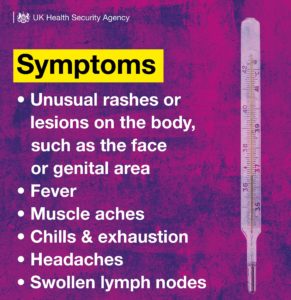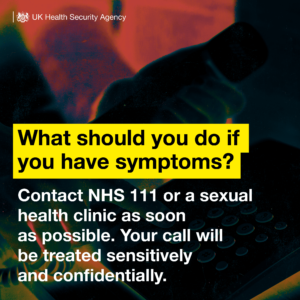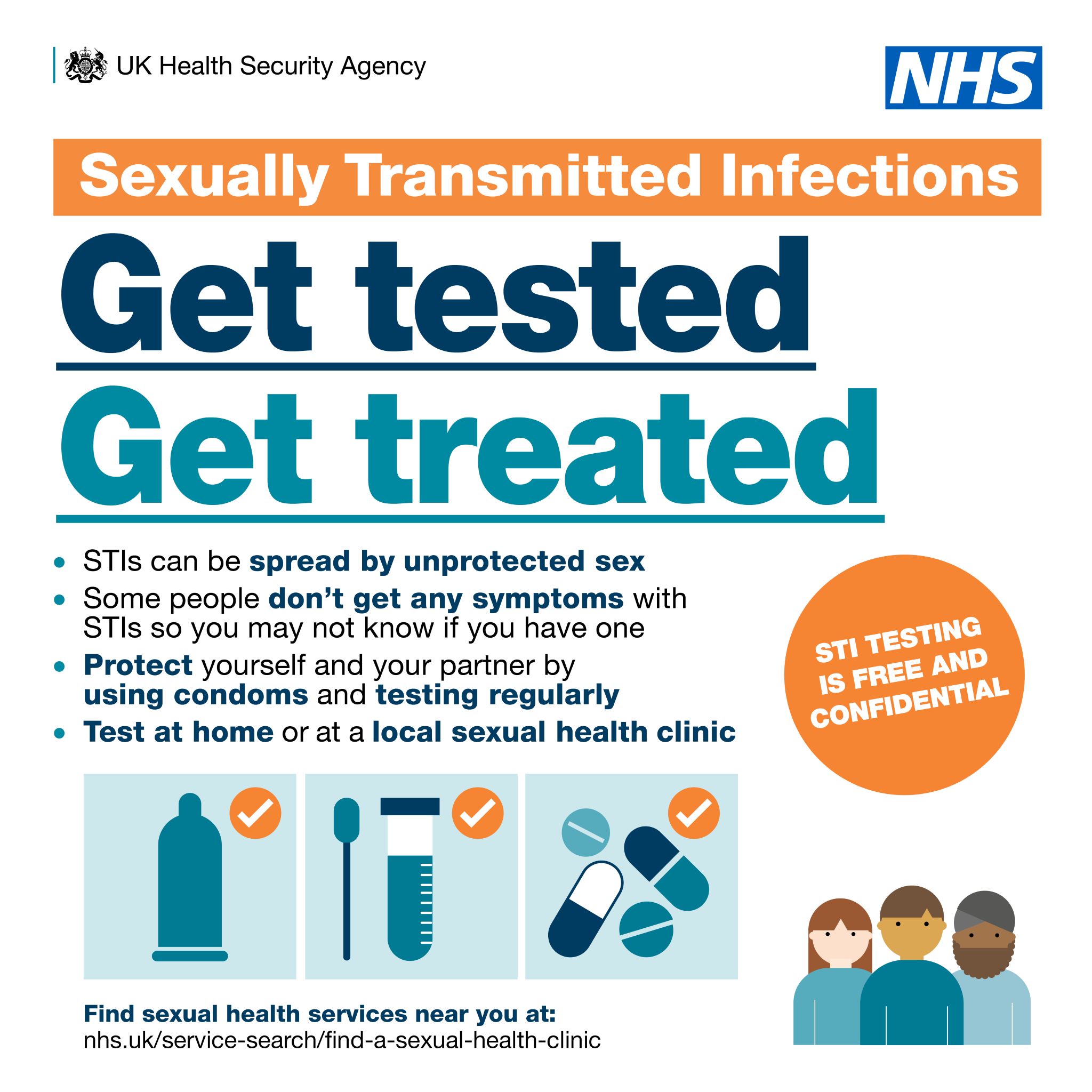Monkeypox – what you need to know
posted by: Don Leslie
Monkeypox is a rare infectious disease, but there are a number of cases in the UK. That number is rising.
Monkeypox is a viral infection usually associated with travel to West Africa. It is usually a mild self-limiting illness, spread by very close contact [including sexual contact] with someone with Monkeypox and most people recover within a few weeks. Similarly to COVID the virus can be present initially without symptoms and still be able to be passed on to close contacts.
The risk to the UK population is low. However, recent cases are predominantly in gay, bisexual and other men who have sex with men (MSM). We are advising MSM to be alert to any unusual rashes or lesions on any part of their body, especially their genitalia, and to contact NHS 111 or their local sexual health service if they have relevant symptoms:
Symptoms
• Unusual new rashes or lesions on the body, especially if they have originate on the face or genitals and spread
• Fever
• Muscle aches
• Chills and exhaustion
• Headaches
• Swollen lymph nodes
Actions you can take:
If you think you have Monkeypox symptoms and are from a known current at-risk group:
- Avoid close personal or sexual contact with others until you know that this is not Monkeypox.
- Contact NHS 111 immediately and your enquiry will be treated sensitively and confidentially
- You can also contact your local sexual health service for advice




Trending Now
- Taking ‘the pill’. A different approach to make this method work best for you
- Does contraception affect fertility?
- Updated blood pressure readings if you are taking combined hormonal contraception
- Does using contraception make you put on weight?
- You can now pick up condoms from your local library!
- The “male contraceptive”
- Does it hurt to have an IUC (coil) fitted?
- Using a moon cup? Read this if you also have a coil in place..
- HPV Vaccine for Boys. We answer your questions.
- Mpox vaccines are now available

Easter opening times for sexual health clinics
Please note all sexual health clinics will be closed from Friday 18 April to Monday 21 April, and will re-open […]

Mpox vaccines are now available
From Jan 2025, Devon Sexual Health will be working with the Royal Devon University Healthcare NHS Foundation Trust’s vaccination team […]

Torbay clinic will be closed on Monday 2 December
To facilitate the implementation of a new electronic patient record system (EPR), our Torbay clinic only will be closed on […]

Rise in HIV diagnoses steepest among heterosexual men and women
The latest HIV surveillance data for 2023, published by the UK Health Security Agency (UKHSA) today, show that the number […]
